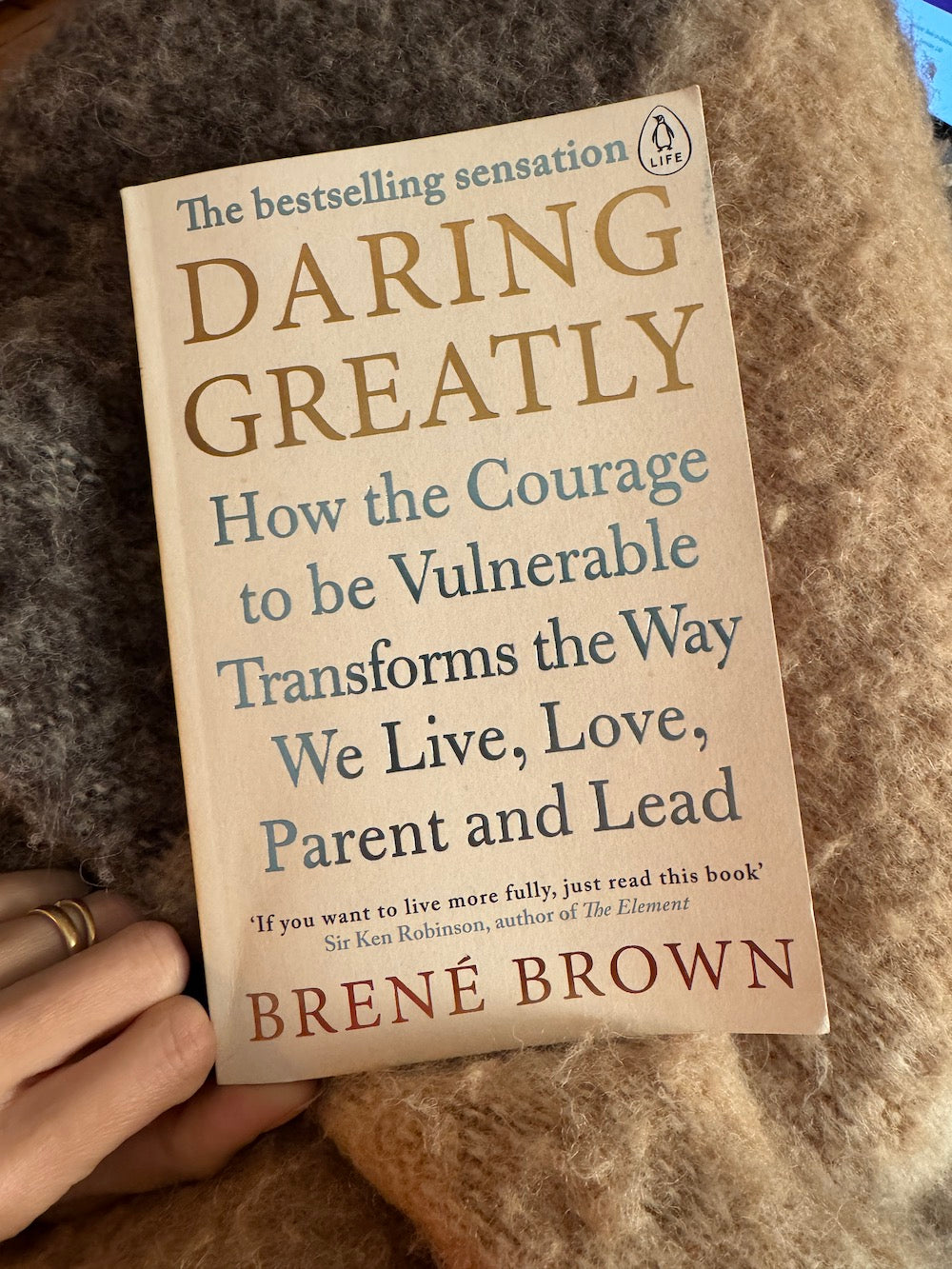
Joy is one of the most terrifying emotions
We often think fear or sadness are the hardest emotions to deal with, but joy can sometimes be even harder to fully experience. For a long time, I struggled to really feel joy and yes, still struggling. When it appeared, I’d hold onto it tightly, afraid it would vanish. I was always on guard, bracing for something bad to happen. After my mom passed, this feeling became even stronger, joy felt too fragile, too risky to trust.
I see this same struggle in others as well. In a recent coaching session, a client told me how hard it was for her to enjoy her life, knowing so many people in the world were suffering. She felt guilty wondering how she could be happy when others were going through such pain. This feeling, of not deserving joy, is something many of us feel, often without even realizing it.
Brené Brown calls this “foreboding joy.” It’s that moment when we feel joy, but instantly start worrying it won’t last. She says, “When we lose our tolerance for vulnerability, joy becomes foreboding. We’re afraid to lean into it because it could disappear.”
No Safety for the Nothing
The truth is, there is no safety net in life. Trying to protect ourselves by avoiding joy won’t save us from future pain. We can’t avoid grief by refusing to feel joy, yet many of us try to do just that. It’s as if by not fully allowing joy, we can somehow shield ourselves from the inevitable losses or disappointments of life.
But as Brené Brown so wisely points out, “We cannot selectively numb emotions. When we numb the painful emotions, we also numb the positive ones.” This means that by guarding ourselves from joy, we are also keeping love, connection, and fulfillment at arm's length.
The fear of losing joy only keeps us trapped in a constant state of waiting; waiting for the other shoe to drop, waiting for something to go wrong. And in that space of waiting, we lose the very moments that could bring us the most peace and fulfillment.

Embracing Joy in the Face of Vulnerability
Learning to embrace joy is not about pretending that life is perfect or that suffering doesn’t exist. It’s about understanding that joy and hardship can coexist. We don’t have to deny the difficulties of life in order to feel grateful for the good things we have.
In my coaching work, I often witness how people hold back from feeling joy because of guilt. They think that by experiencing happiness, they are somehow betraying the pain of others or the struggles in the world. But the truth is, denying yourself joy doesn’t serve anyone. It doesn’t help those who are suffering, and it doesn’t make you more compassionate.
Allowing yourself to feel joy, even in a world filled with hardship, is a courageous act. It doesn’t mean ignoring the pain, it means acknowledging that life is complex, and joy is part of that complexity.

What joy are you holding back? And why?
For me, I realized my hesitation around joy came from fear, the fear that something good would be taken away. But over time, I’ve learned that joy isn’t something to protect or guard. It’s something we need to live fully, with all its vulnerability.
Yes, life is full of challenges, and we all go through hardships. But avoiding joy doesn’t make us safe,it just keeps us from truly living. The only way to experience life fully is to welcome joy when it comes, even if it feels risky or scary. Embracing joy makes us more present, compassionate, and stronger.
So, let joy in, even when it feels terrifying. It’s one of the most radical acts of presence we can offer ourselves.
7 Simple Tools to Embrace Joy in Everyday Life
1. Gratitude Practice
Why it works: Gratitude helps you focus on the positive moments in life, making it easier to experience and appreciate joy.
How to do it: Write down three things you're grateful for each day. They can be small or big - like a warm cup of coffee or a meaningful conversation.
Tip: Keep a gratitude journal to track the little joys that often go unnoticed.
2. Mindfulness Meditation
Why it works: Mindfulness keeps you in the present, reducing anxiety about the future or past and allowing you to fully experience joy in the moment.
How to do it: Set aside 5-10 minutes each day to sit quietly and focus on your breath. Notice how you feel without judgment.
Tip: Use apps like Headspace or Insight Timer if you're new to meditation.
3. Savoring Small Moments
Why it works: Savoring encourages you to extend and deepen positive experiences.
How to do it: When something joyful happens - whether it's enjoying a meal, a conversation, or a walk - pause and take a few deep breaths. Focus on how it makes you feel, and really absorb the moment.
Tip: Reflect on these moments before bed to reinforce the feeling of joy.
4. Let Go of Perfectionism
Why it works: Striving for perfection can block joy, as it keeps you in a state of "not enough."
How to do it: Accept that things don’t have to be perfect for you to enjoy them. When you catch yourself being overly critical or perfectionist, pause and ask, “Can I let this be enough?”
Tip: Celebrate small wins and progress rather than waiting for perfect outcomes.
5. Connect with Loved Ones
Why it works: Joy is often amplified when shared with others.
How to do it: Spend quality time with friends and family. Be present in these moments, and express how much they mean to you.
Tip: Practice "joyful vulnerability" by openly sharing your happiness with others.
6. Create Joy Rituals
Why it works: Regular habits can foster joy as they give you something to look forward to.
How to do it: Incorporate small activities that bring you joy into your daily or weekly routine, like listening to your favorite music, walking in nature, or cooking a special meal.
Tip: Make these rituals intentional, set aside time to truly enjoy them without distractions.
7. Self-Compassion
Why it works: Being kind to yourself allows you to feel deserving of joy, especially when you're tempted to feel guilt or shame.
How to do it: Practice self-compassion by treating yourself with the same kindness you'd offer a friend when things get tough. Acknowledge that it's okay to feel joy, even when life is imperfect.
Tip: Use affirmations like “I deserve joy and peace in my life” to shift your mindset.
By incorporating these tools, you can gradually build a more joyful and present way of living, even when life feels challenging.

Book Recommendation
In Daring Greatly, Brené Brown emphasizes the importance of vulnerability as a source of courage and connection, arguing that embracing vulnerability can lead to greater authenticity and fulfillment in our lives. She encourages readers to let go of perfectionism and the fear of judgment, advocating for a wholehearted approach to life where we engage fully with our experiences, both joyful and painful.
